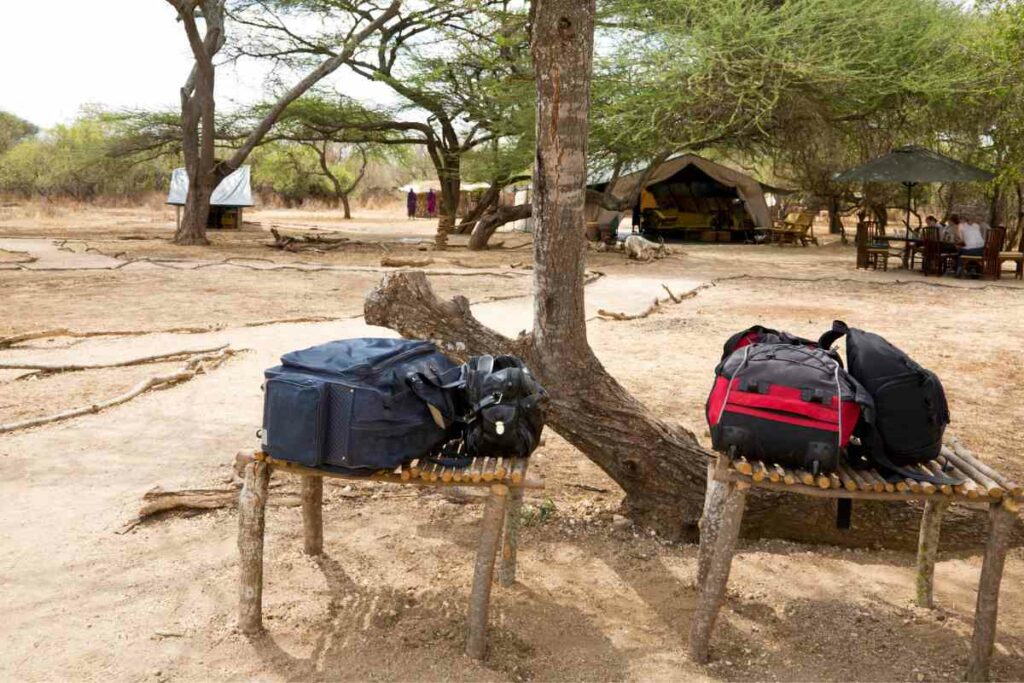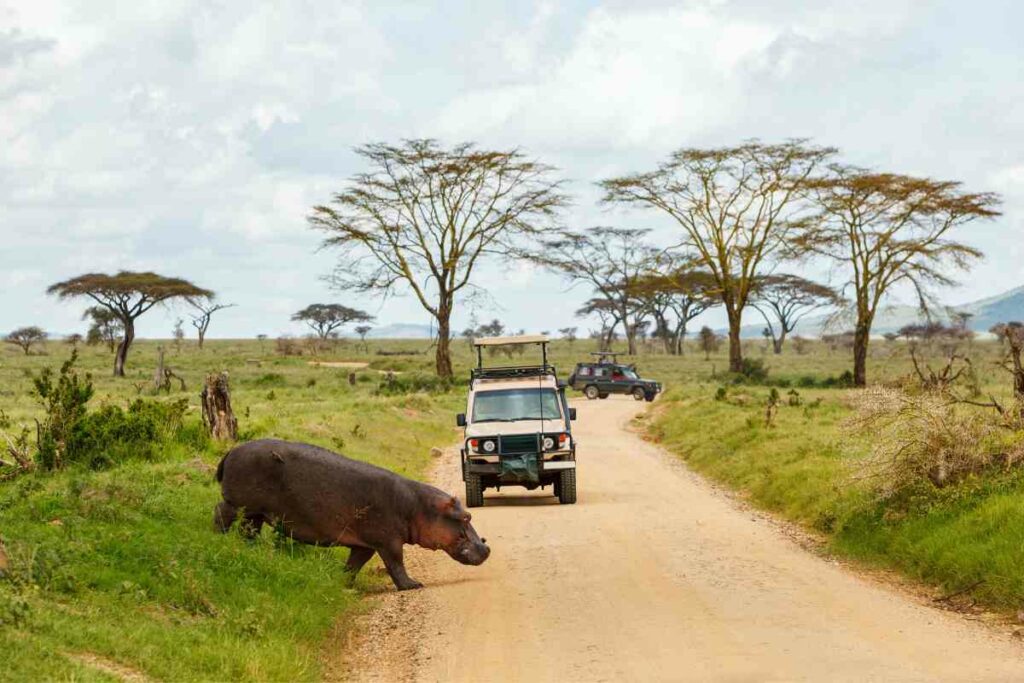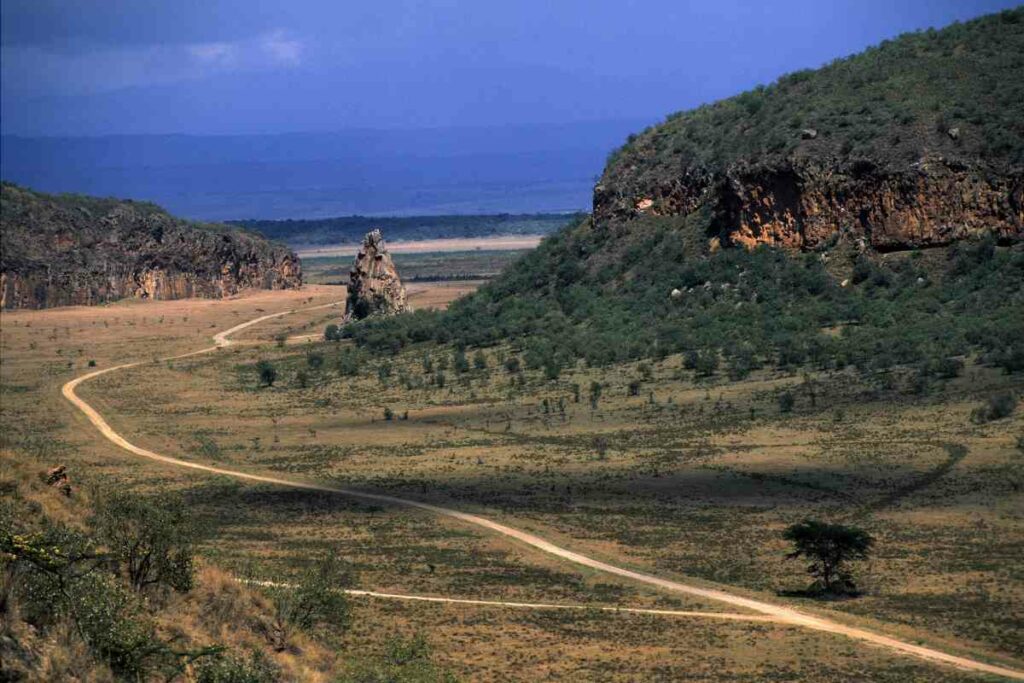Responsible travel is also referred to as ecotourism, sustainable travel, or green travel.
It is travel that respects the people, ecosystem, and culture of the destination.
You travel responsibly when you live the destination better than you found it.
In Africa -Tourism is a major source of income. Responsible travel ensures that local communities also get a part of that income when tourists spend on local businesses.
Read on to discover ways that you can travel more responsibly to Africa.
1. Use A Genuine and Ethical Tour Operator
There is a plethora of tour operators that you can use to plan your African Safari.
The primary objective of tour operators is to make profits, just as with any other company.
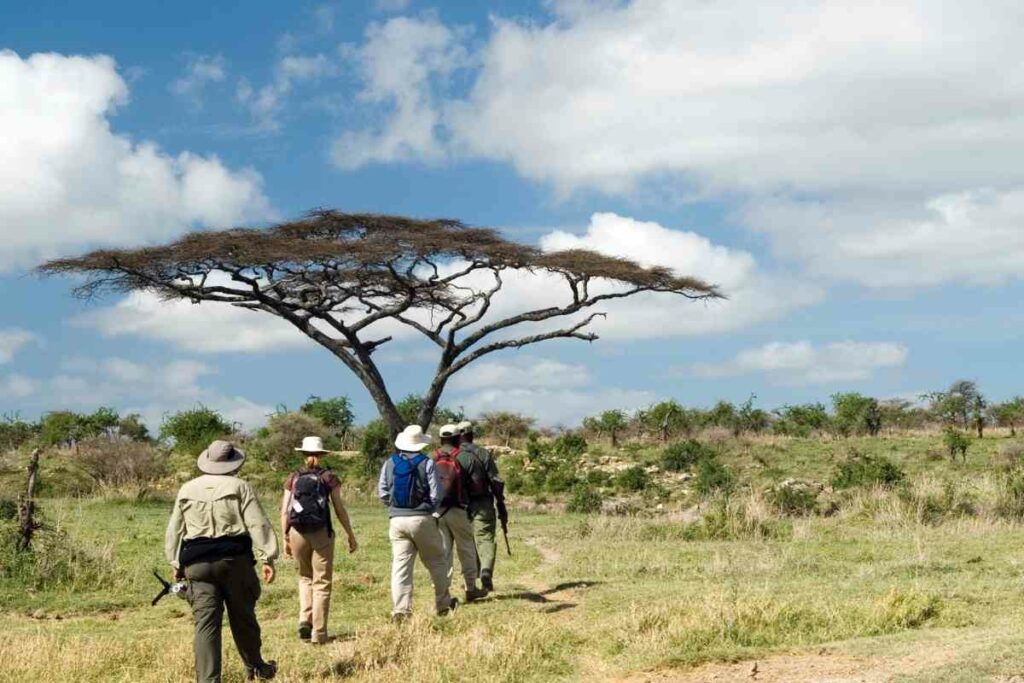
However, some have responsible travel in mind, and these are the tour operators you ought to work with.
Aside from earning revenue, an ethical tour operator will ensure that its clients not only have a good time but also that the environment and culture of the destination are respected and sustained by the tourists.
Thus, before settling for a tour operator, it is imperative to do your due diligence and find one that provides ethical travel.
A tour company that adheres to its country’s rules and regulations is a good start.
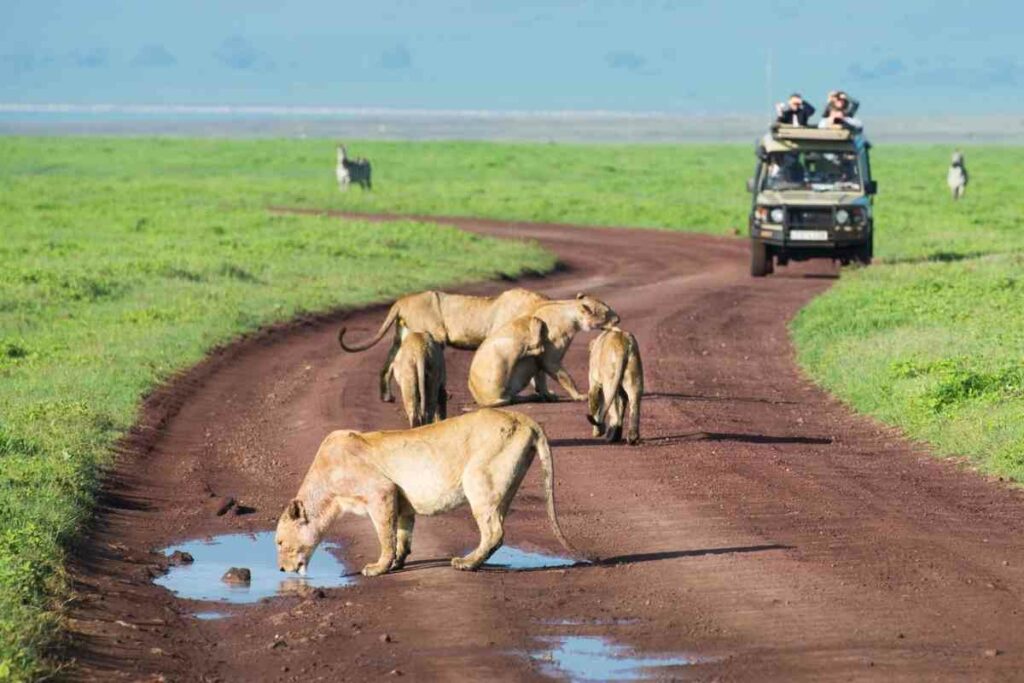
A tour company that enables you to be responsible even on a luxury safari is very recommendable.
If you are not planning to stay long enough to interact with local communities and take part in conservation projects, you should consider a tour operator that includes green tax to the price of the tour.
The fee is used to finance projects promoting sustainability in the destination country.
2. Leave As Minimal Carbon-Print as Possible
When traveling to Africa, it is inevitable to take a flight unless you are down to travel by sea.
A cruise will take at least a few months, which is not time we can always afford. So, a flight is the only convenient way to traverse between continents.
Unfortunately, flying leads to the emission of carbon, which contributes to global warming.
The travel sector is among the worst contributors to global carbon emissions, at 8% per year.
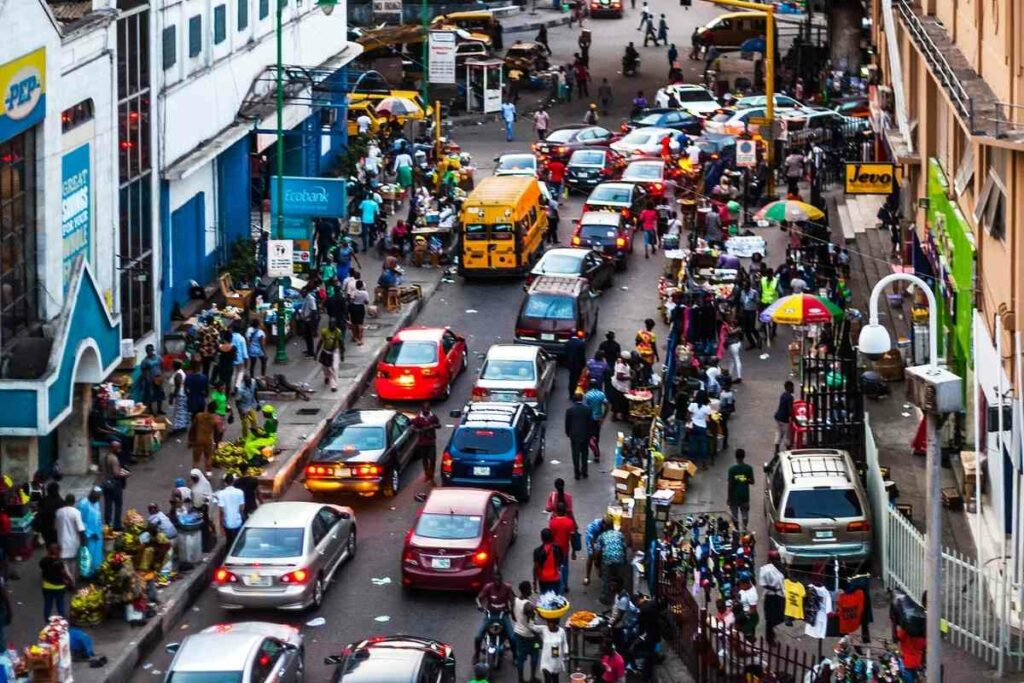
While you can’t completely avoid taking a plane, there are ways you can make up for the carbon emissions, or at the very least, keep it at a minimum.
One of those ways is to limit connected flights as much as possible -if you can take a single flight from your country to your destination, the better.
While in Africa, it may be tempting to take domestic flights between cities, especially because some roads are not in their top-tier condition.
Still, using local transport will greatly reduce the amount of carbon released into the atmosphere.
There are buses and trains in most African towns.
The train system is safe, decent, and reliable in countries such as Egypt and Tunisia. You can also opt for a walking or cycling safari whenever applicable.
Joining a tree-planting project is a sustainable way to make up for the carbon print you will have left during your travel.
Kenya’s Carbon Footprint is one such project, and it plants trees in the Kenyan Rift Valley region.
If you are in Southern Africa, Greenpop is a tree-planting project that you can join.
Donating to tree-planting organizations is a viable option if you don’t have time to go tree-planting or don’t wish to get your hands all muddy.
3. Purpose To Hang Out With The Local Community
Africa is a very culturally rich continent.
The continent is graced with hundreds of tribes, each of which has its unique way of living.
Some of the most popular African cultures include:
- the Masai of Kenya and Tanzania
- the San of Southern Africa
- and the Himba of Namibia
There is a lot that you can learn from your destination’s local community, not to mention you will have a memorable experience hanging out with people outside your own culture.

Therefore, purpose to plan a visit to local villages when you travel to Africa. Your tour operator can help you organize one.
It is advisable to do a bit of research before heading out to interact with the local people.
Learn something about their way of life and even pick up a few words from their language to help kickstart your interactions and break cultural barriers.
Remember to be considerate and sensitive to the culture of the people you are interacting with, as it is only ethical.
You should also be willing to blend in and take part in some of their activities.
For Instance – The Masai of East Africa usually have celebrations to mark rites of passage; don’t shy away from chanting and dancing with them. You could even try on their traditional attire.
More importantly, ask to volunteer in a community initiative.
There are usually many community projects – it could be building a school, a hospital, or a borehole.
Spending time with the local community while contributing to their wellbeing at the same time results in such a wholesome safari.
4. Observe Ethical Interactions with Wildlife
While Africa has beautiful landscapes and a diversity of cultures to experience, wildlife is arguably the primary tourist attraction.
The scene of wild animals existing in their natural environments doing natural activities like hunting, mating, and feeding is a sight to behold.
It is also easy to spot the Big 5 in the same park, which is uncommon in other continents.

Usually, tourists have the opportunity to experience the animals first-hand, of course, with proper guidance.
It is very unlikely that anyone would pass up an opportunity to interact with wildlife.
However, you should note that one-on-one interactions can be exhausting for the animals.
Often, the interactions involve the animals being sedated so that they are easier to control.
With this in mind, it is important to be mindful and minimize these interactions as much as possible.
Do your homework and learn how to best promote the animals’ wellbeing during your safari.
Maintain the animals’ natural environment as much as possible; avoid flash photography or running them off their paths.
Lastly, be keen to follow the rules laid out by the parks or reserve’s management for your and the animals’ safety.
5. Buy Local
As we have already established, tourism is a major source of revenue in Africa.
You can do the people one better by buying from local businesses. Acquire curios, gifts, and souvenirs by which to remember your safari.
It is advisable to buy directly from the artist minus middlemen, as this ensures that the income goes to support the local families.
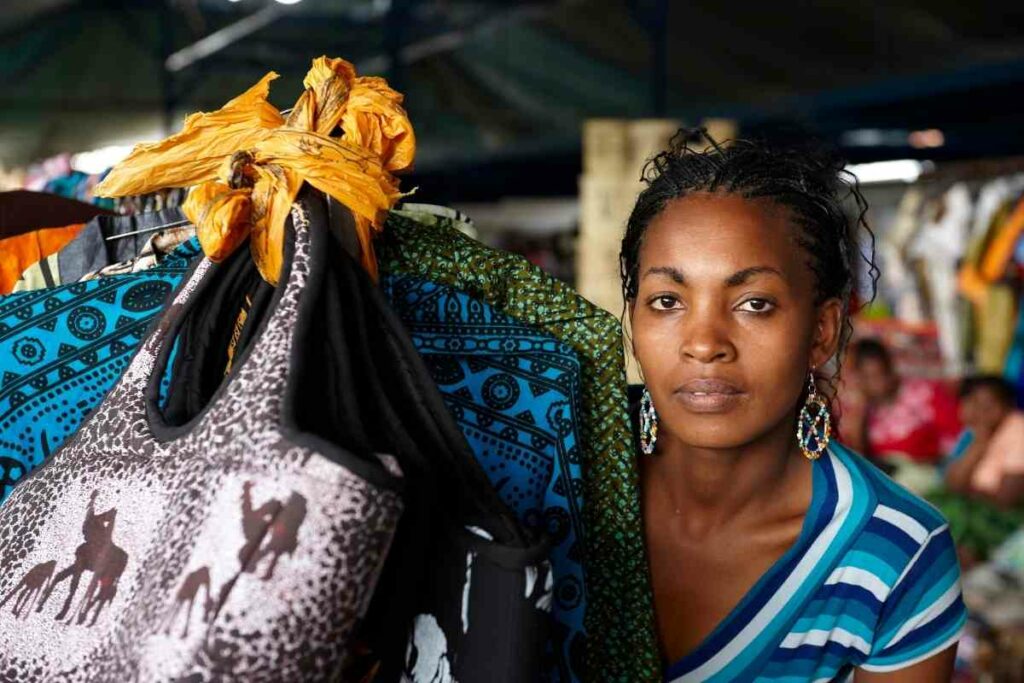
For instance, you can get a local tailor to make you a cultural garment worn by the local community.
The Masai market in Kenya and Tanzania has many merchants selling sandals, belts, and neckpieces made from local resources.
You can also arrange a village visit to acquire the items right where they are made.
Tengenenge village in Zimbabwe is renowned for making Shona sculptures. Similarly, the Kumasi people in Ghana make splendid pots and brass casting.
Feel free to take part in a friendly bargaining back-and-forth with the merchants.
Even so, look not to exploit them by over-bargaining.
If you do not wish to make rounds in the villages or go to a local market, you can stop by a government-owned curio shop where the items have fixed prices.
However, you should know that these shops have a huge markup and are thus significantly more expensive than buying directly from the local people.
6. Book Into a Local Hotel
There are many international hotels in Africa, like Hilton, Sheraton, Windsor, and InterContinental.
If you book into these, the profits go to the headquarters, none of which are in Africa. Therefore, you would be a more responsible traveler if you booked into a hotel owned and run locally.

Services in locally owned hotels are just as good as international hotels, so you would not be missing out on anything.
Also, you will have a more ‘local’ experience by staying in a local hotel, which further enriches your safari experience.
While choosing the hotel you will book into, you can take it a step further and check how it operates.
For instance:
- Does it employ locals?
- Does it buy commodities from the local market?
A country like Kenya is big on having luxury hotels and camps that benefit local communities.
7. Eat In Local Restaurants
Eating all your meals at your hotel is very convenient, especially if the food is tantalizing.
However, you will be a more responsible traveler if you go out and explore the local cuisines.
You will economically benefit the local community. It helps that many African cities have restaurants that make finger-licking meals.

If you are unsure where to start, ask the hotel manager for recommendations.
You could even ask around – African people are known to be friendly and ready to help.
Be careful, though; you don’t want to get stomach problems while on safari. It is advisable to start off slowly- don’t overindulge.
Ensure the foods are well-cooked, especially if it’s street food.
Avoid fruit salads because the fruits may not be properly washed. Get a local beer to wash it all down at day’s end.
8. Donate To Local Communities
African countries are either second-world or third-world, meaning they are either underdeveloped or developing.
So, some communities live in abject poverty and, as such, lack basic needs such as comfortable clothes, safe shelters, and school supplies.
With this in mind, it would be very helpful to pack items during your safari that you can donate to these communities.

It could be clothes, stationery, or even bedding.
You can donate to a school or a children’s home while traveling through the continent.
It is imperative to uphold the dignity of the community you are giving to by respecting them and not rubbing your charity in their face.
Also, you ought to give sustainable gifts to avoid creating a cycle of dependency.
Additionally, you should do due diligence to avoid donating gifts that will not benefit the community.
For Example – It would be a bad idea to donate laptops in an area that does not have access to electricity, internet, and resources to train people how to use them.
If you are handing out candy and trinkets, ensure that there is adequate dental care in the region.
Also, you may have to check the medical histories of the recipients to avoid triggering a condition or an allergy.
Generally, you may want to steer off of such kinds of gifts.
Suppose you are donating towards a community project such as building a clinic, a school, or a children’s home.
If that is the case, involve the local community. Have them supervise, hire local workers, and even involve them in the planning.
9. Conserve Water
Some regions in Africa, especially Sub-Saharan Africa, face water scarcity.
Therefore, it would be responsible of you as a tourist to use water conservatively. For instance, you could opt for quick showers instead of bathing.

Also, you could use a basin instead of using a water-hungry washing machine to clean your clothes.
Alternatively, you could re-wear your clothes if they are not that dirty. If you are camping, bring biodegradable toiletries and avoid littering.
Still, don’t ‘over-conserve’ to a point where it compromises your comfort and sucks the fun out of your safari.
10. Help Promote Tourism in Africa
Tourism is one of the biggest sources of revenue in many African countries.
So, it helps when more and more tourists visit.
Encourage your friends and relatives to visit by spreading positive information about the continent.
Talk about the breathtaking landscapes, diverse cultures, beautiful houses, friendly people, delicious cuisines, and wildlife.
Africa has been branded with a not-so-colorful image of being dangerous and poverty-stricken.
The continent has been a victim of stereotypes for receiving negative press for many years.

News channels tend to focus on the negative aspects that highlight societal problems such as crime, diseases, famine, and war, ignoring the continent’s good side.
Therefore, shedding light on the positives will balance out the perspective that people have of Africa.
You can do this by posting about it on social media, writing about your safari experience, or just word of mouth.
Furthermore, it is unfair for people to miss out on the beauty of Africa because they lack information.
Frequently Asked Questions
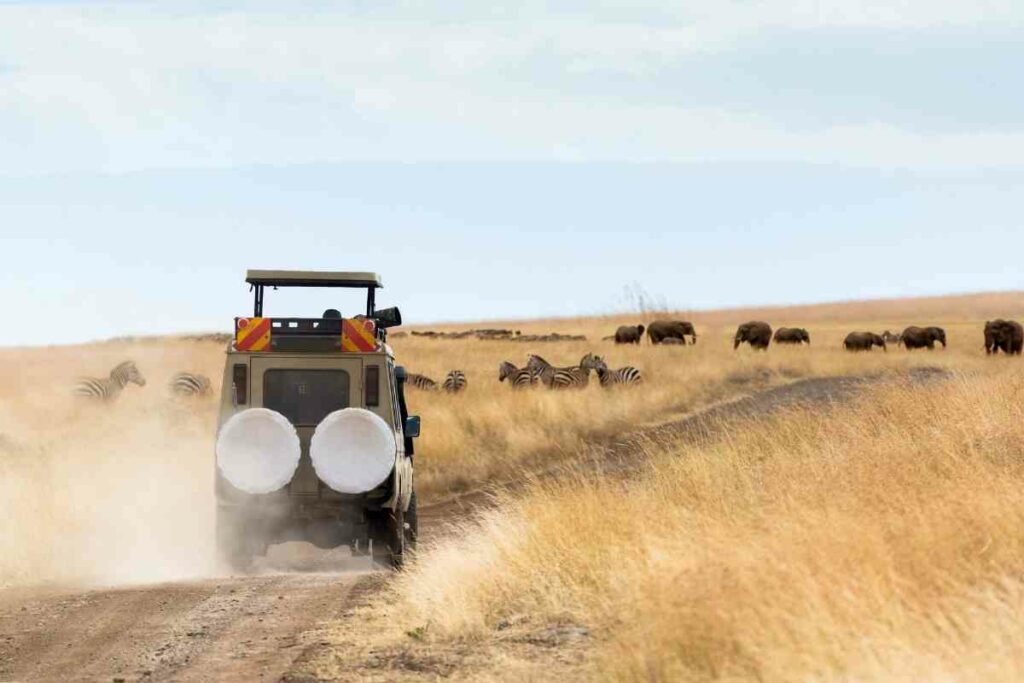
1. Can A Luxury Tour Be Termed as Responsible?
The simple answer is yes. It is possible for a luxury tour to be responsible; it all depends on the tour operator.
If the tour company prioritizes ethical and responsible travel as much as it upholds the client’s comfort, then a luxury tour can be responsible.
Such a company will organize activities that promote the local communities.
It could be a visit to the orphanage, local school, or hospital. The company could also arrange for the guests to spend time with the local folk in a village.
Also, it could organize for the guests to have a tree-planting session in conjunction with an environmental organization.
Unfortunately, finding a company that executes this effectively is not always easy. Most luxury tour companies prioritize their clients more than the community.
Luxury travelers are usually high-end tourists who have a high potential to give.
They can finance the building of a hospital, sponsor a nurse for a number of years, settle someone’s hospital bill, or see a needy student through school.
2. Can A Low-Budget Safari Be Responsible?
A low-budget safari is very likely to be responsible because most of these operators will get supplies from the local community.
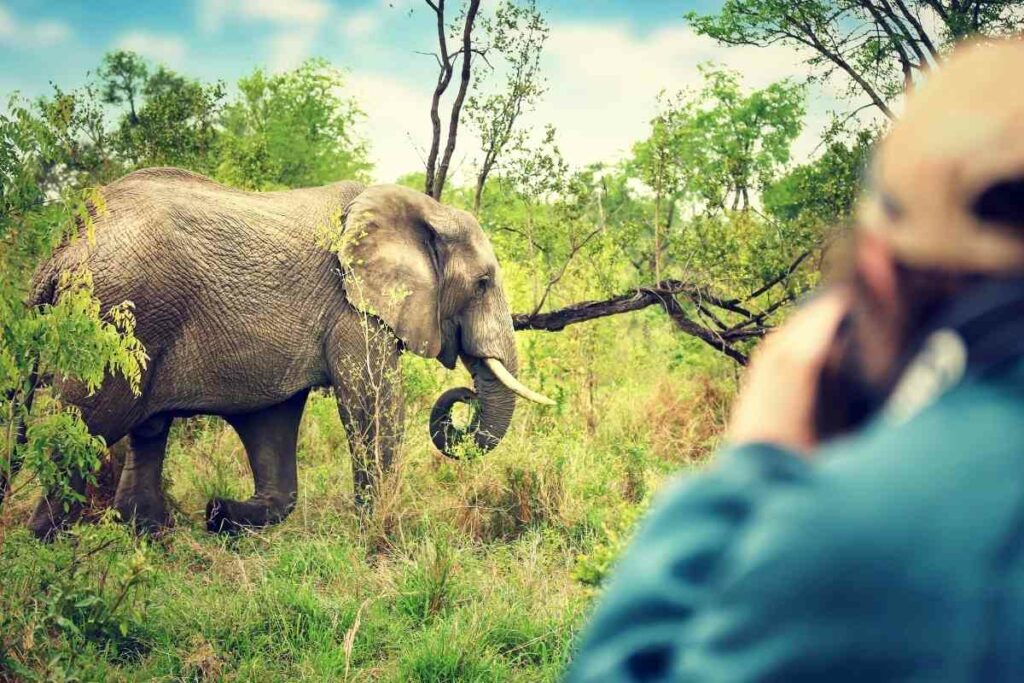
Thus, they will spread dollars by shopping in local markets and outsourcing to locally-owned hotels and restaurants.
Still, you need to be careful not to get less than you deserve. Some operators may claim to be eco-friendly because they ration electricity or provide a poorly-equipped toilet.
If you find a relatively more affordable dealer, check to ensure that they are not cutting costs in an unethical manner, such as underpaying their staff.
In Conclusion
Africa is a beautiful continent that attracts thousands of tourists every year.
It has wondrous landscapes, rare wildlife species, and a diversity of interesting cultures. Tourism is among the major sources of revenue for the continent.
As a tourist, you should focus not only on the fun part of the trip but also ensure that you travel ethically and responsibly.
If you follow the guidelines provided in this article, you will be sure to have a wholesome and fulfilling African safari.



